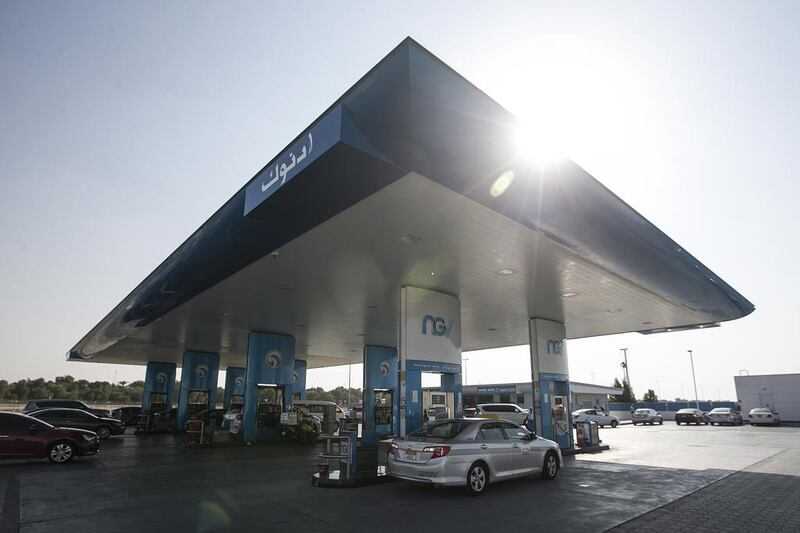Fuel costs for cars will be 5 per cent cheaper for UAE residents starting on Saturday as petrol prices fall for a fourth consecutive month amid a weak oil market.
The UAE Ministry of Energy announced on Tuesday that consumers will pay Dh1.86 a litre for Super 98, a 5.1 per cent drop from last month’s figure of Dh1.96.
Special 95 will decline 5.41 per cent to Dh1.75 from Dh1.85, and E Plus will cost Dh1.68, down from June’s Dh1.78. Diesel prices will drop to Dh1.84, a 3.16 per cent slide from last month.
The latest petrol prices are, on average, 2 fils below prices seen for the same month last year.
The cost of petrol in the UAE has fluctuated for nearly two years, since the Ministry of Energy began liberalising fuel prices using “benchmark prices” which have not been publicly disclosed.
Fluctuations in the oil market impact the price of petrol and diesel as the two are by-products of crude. The price of Brent crude, the international benchmark, has fallen this month, hitting its lowest point of the year last week at US$43 a barrel.
The main problem is the market needs to swallow all of the excess supply still finding its way into the supply chain, said Eugene Lindell, an oil market analyst at JBC Energy consultants. This has thrown the market into a constant contango, or where the spot price is lower than the forward price.
More oil from the United States as well as Nigeria and Libya is putting pressure on the market. “Production will still increase for a few months as there’s a lag effect,” Mr Lindell said.
Looking at the forward curve, it seemed as though contango was being reversed. “Around the end of next year, the prices tipped to backwardation and then was nearly flat before heading into contango again,” he said. “Now it’s just more or less constant contango and that’s a sign that the market is in a bear mode right now.”
OPEC members and 11 non-members, including Russia, agreed in May to extend output cuts by 1.8 million barrels a day into next year. OPEC members Nigeria and Libya were exempt from the agreement.
Despite recent cutbacks in oil production by Opec and others, producers are struggling to stabilise prices, with US shale and other sources adding to the oversupply, according to the London-based investment management firm Sun Global Investments.
“It’s difficult to be bullish about oil prices in the medium term,” said Mihir Kapadia, Sun Global’s chief executive and founder.
lgraves@thenational.ae
Follow The National's Business section on Twitter





